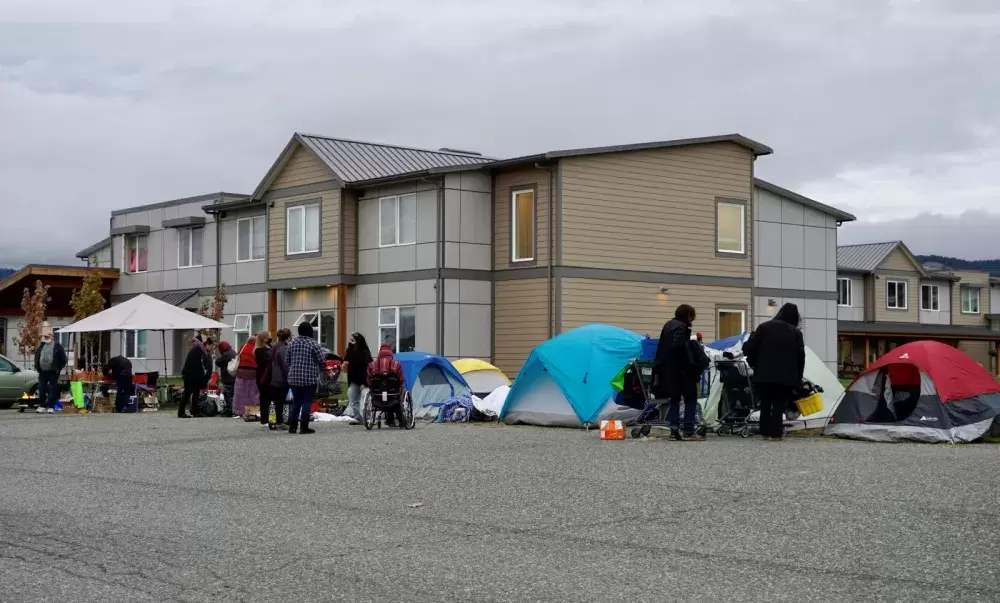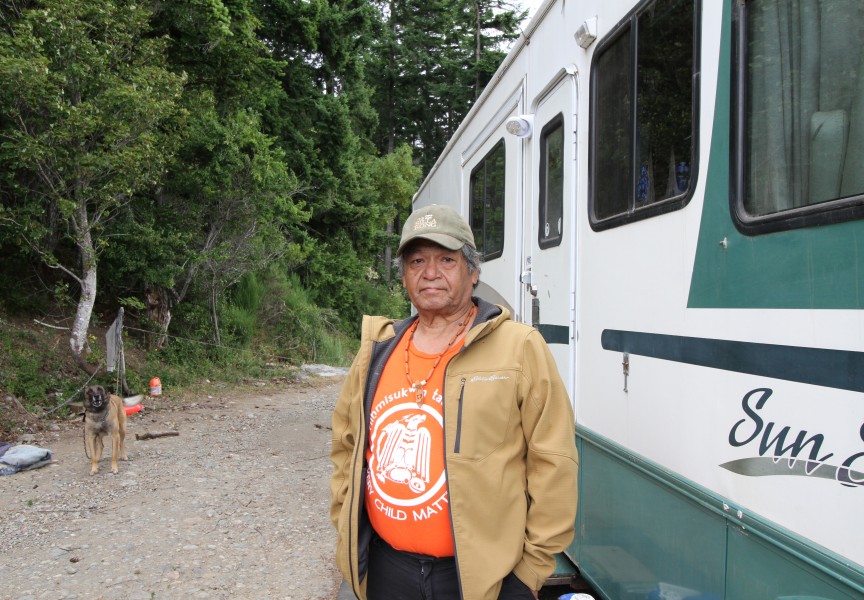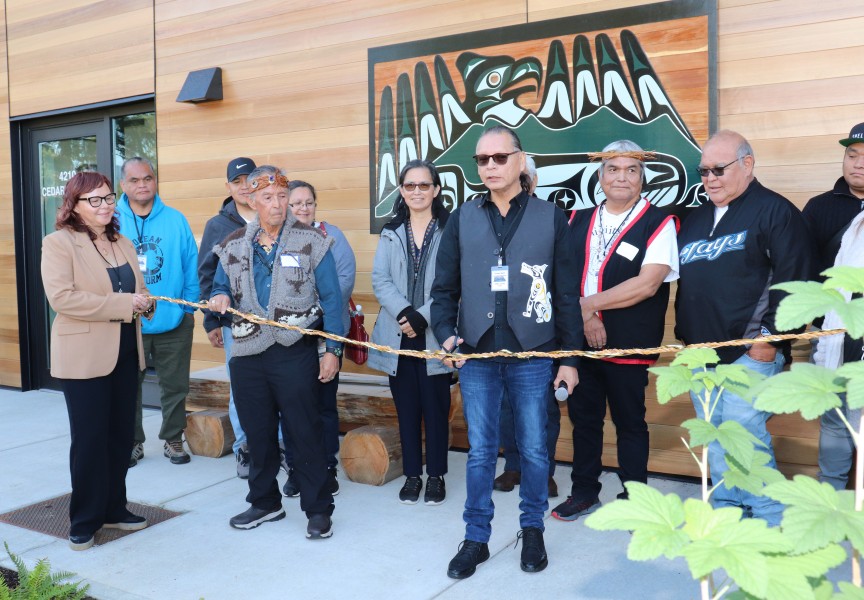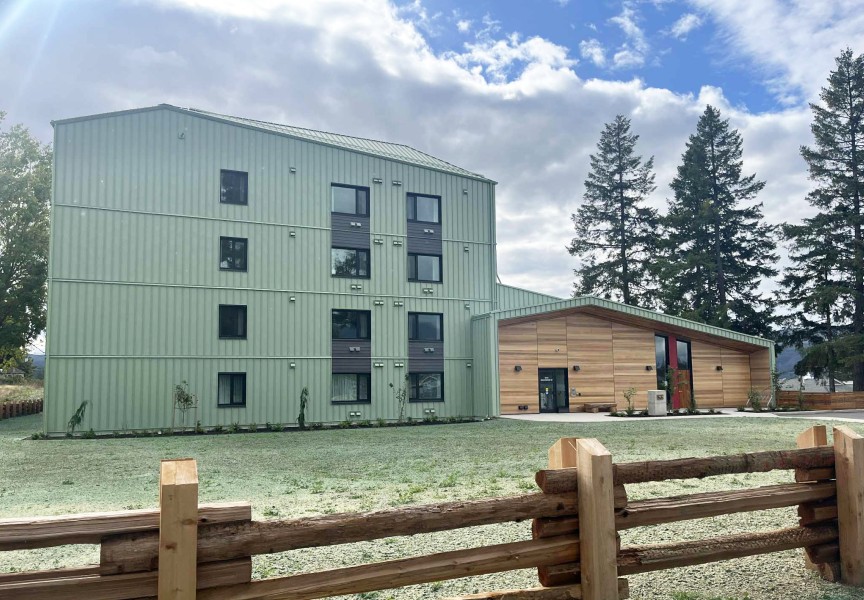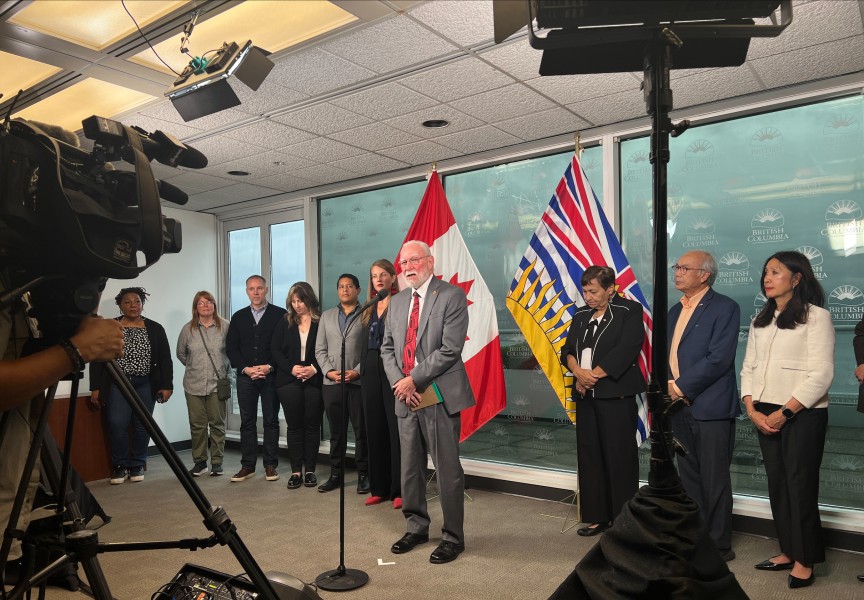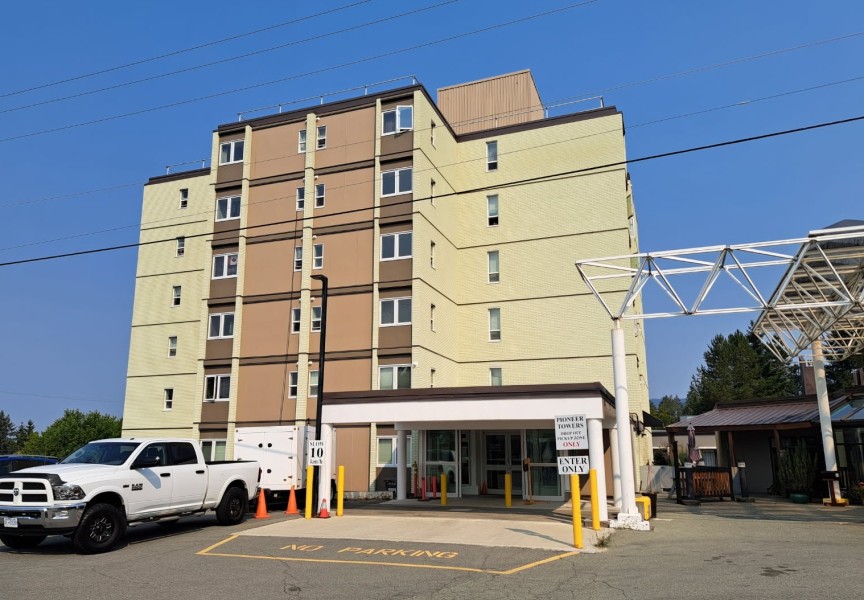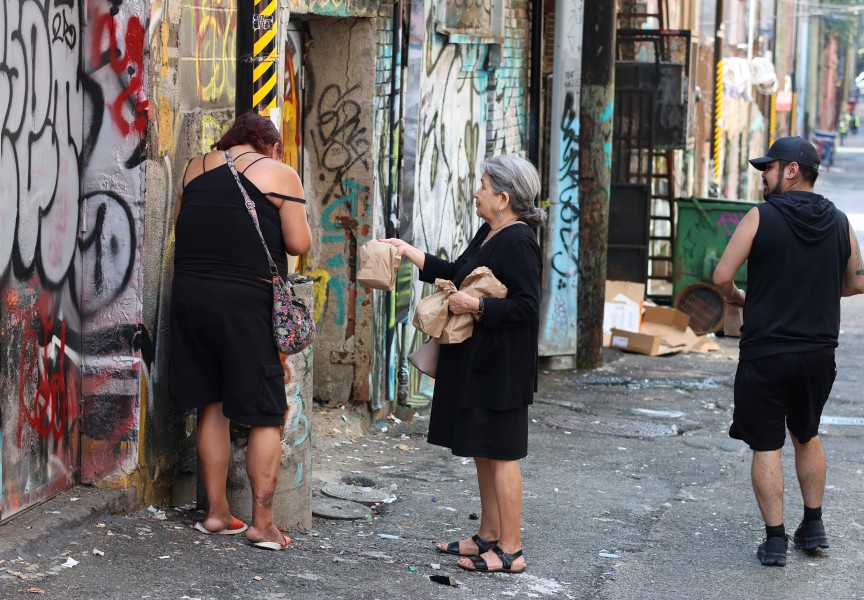BC Housing has received recommendations from a third-party review that looked into operational concerns surrounding the Port Alberni Shelter Society’s (PASS) management of two Port Alberni shelters.
The final report identifies 10 key recommendations for the shelter to better serve Port Alberni’s homeless community and enhance services. BC Housing said they will be accepting all the recommendations, and are already working on a number of them.
The Port Alberni Shelter Society operates a BC Housing funded facility called Our Home, located on Eighth Avenue, that opened in March 2019. The facility includes a 23-bed emergency shelter, a 30-unit supportive housing program and Community Expansion Shelter. The society also operates the Overdose Prevention Site, which is not funded by BC Housing.
A protest that began late last year by individuals citing a number of allegations against the shelter society’s management and operations was the catalyst for the third-party review.
After multiple interviews with former clients, community members, PASS board of directors and community partners, the contractors found that one of the central issues identified by the interviewees is that PASS staff issue too many service restrictions, some of which have been long-term, multi-year bans and that there is no sufficiently accessible appeal or complaints process for clients who have been barred from the shelter.
Interview respondents also pointed out that trauma-informed support and adequate staff training is needed at the shelter and that PASS is not providing the right type of housing for people with significant mental health concerns.
“All service providers and community partners interviewed agree that there is no minimal barrier housing or emergency shelter in Port Alberni, but it is desperately needed,” states the executive summary of the report.
Former clients interviewed claim that shelter clients can face stigma, demeaning language and jail-like rules.
The summary says clients who are often barred from the shelter, or who are asked to leave for minimal or arbitrary reasons, are Indigenous with mental health concerns or learning disabilities. Indigenous representatives who were interviewed feel adequate staff training, trauma-informed practice and cultural safety are missing from the PASS approach to providing service to Indigenous people.
The summary states PASS senior management confirmed that there are no Indigenous people employed in management or front-line positions at Our Home.
It is recommended that BC Housing embed local First Nations culture throughout PASS facilities by building stronger relationships with local First Nations and improving Indigenous representation in the organization.
BC Housing said they, and PASS, will work in partnership with the Nuu-chah-nulth Tribal Council, Tseshaht First Nation and Hupačasath First Nation on building stronger relationships with Indigenous communities.
Additional recommendations include for PASS to provide their staff more in-depth training and upgrading in mental health related topics, domestic violence and awareness of local First Nations history. It’s recommended for BC Housing to work with PASS to ensure the safety of women in their co-ed facilities.
BC Housing said they will “request an updated list of all staff and their current training levels and will facilitate training through the Homelessness Services Association of BC where needed.
Recommendations go on to say that BC Housing should review service restriction and eviction procedures with PASS and ensure that only those who present an imminent health and safety threat are considered for time-limited-service restrictions and evictions.
BC Housing recommends the continuation of the community-based, arm's-length Review Committee overseeing service restrictions.
Similarly, it is recommended that BC Housing work with PASS to develop more accessible and client-centred complaint and appeal processes for evictions and service restrictions at Our Home.
The report also recommends that an alternate shelter or housing facility with strong mental health and substance use supports is developed in Port Alberni by a different service provider and with collaboration from local First Nation’s representatives.
Going forward, BC Housing will continue to work with the society board on the recommendations.
To view the recommendations in full, visit BChousing.org/news.
In a four-page PASS executive summary responding to the third-party report, released by the society’s board of directors, it states that PASS has already addressed some “important issues” that the consultant’s review highlights, or is in the process of addressing.
The society disagreed with the consultant’s decision not to obtain the input of current clients for the review.
“While we respect the reasons for this decision – to protect our clients and their confidentiality – the net outcome is a review that does not include the essential input of a key audience that uses our services and interacts with our staff every day,” states the response.
In the response, PASS states they agree with the need for expanded mental health support services in Port Alberni and that they would welcome the opportunity for additional mental health training for staff.
Touching on their complaints and appeal processes for when they need to restrict access to their low-barrier shelter, PASS’s response states they are recommitting to improve efforts to raise awareness about complaints and appeals and how they’re addressed.
PASS estimates close to 19 per cent of their regular clients at the shelter are Indigenous and they disclosed they have Indigenous individuals on both their board of directors and staff.
“We’d be happy to discuss with the Nuu-chah-nulth Tribal Council (NTC) and other Indigenous service providers in the community how to create a more culturally supportive and safe environment for our Indigenous clients,” states PASS’s response.
The society believes the consultant’s report doesn’t sufficiently acknowledge the impact that COVID-19 and public health/physical distancing measures have had on how PASS has been able to provide service over the past year.
“We had plans for an organizational review and strategic planning session in 2020, which was postponed due to the crisis presented by COVID-19 pandemic,” the society said. “We acknowledge that the pandemic has delayed our board training, strategic planning and team-building opportunities, and we are looking forward to restarting this process as COVID-19 restrictions are eased.”
In addition, PASS says a successorship plan for the board and senior management is currently being developed.
“We acknowledge that these plans need to be documented in writing and approved by the board of directors, per best practice for non-profit organizations. PASS commits to do this in 2021.”
Graham Hughes, advocate and original protester to call for an investigation into the shelter society, said in a press release he’s grateful to the City of Port Alberni for requesting that an investigation occur.
Hughes said the 10 recommendations and action items show that his, and other protester’s concerns, were true and justified and he applauds BC Housing for accepting and implementing these recommendations.
Hughes added that BC Housing’s executive summary of the report caused concern by their “omission of their own negligence in oversight of the multi-million-dollar funded programs run by PASS.”
Hughes alleges his sister lost her life due to neglect on the part of PASS and their operations, under BC Housing funding, which was the reason he began a protest last year.
“The accusations which lead to our protest were not just of simple casual misconduct,” Hughes said. “Many of the accusations that have been made against PASS are criminal in nature, and need to be investigated with the sensitivity and diligence criminal acts should be.”
In addition to the action items and recommendations already in place, Hughes is calling on BC Housing to add one more: an end to the wet weather bed model.
“If we want to see lives saved, any bed in our community that can be funded for shelter – should be,” Hughes said. “There is currently a housing crisis, an overdose crisis and a plague. To continue a model where we provide refuge to our most vulnerable from those things only if it’s raining is illogical, and inhumane.”

